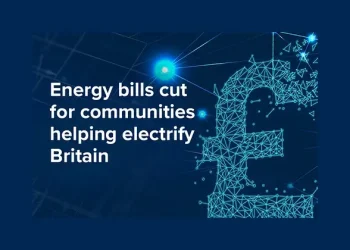Introducing the Energy Smart Data Scheme
The government has initiated a call for evidence to explore the implementation of a smart data scheme in the energy sector. This initiative, modeled after the successful Open Banking scheme, seeks to provide consumers with greater control over their energy data, enabling them to make more informed decisions about their energy usage and potentially save money on their bills.
How the Scheme Will Work
The smart data scheme involves the secure sharing of customers’ energy consumption data with authorised third parties (ATPs) at the customers’ request. These ATPs can then offer bespoke products and services tailored to the consumers’ needs, such as comparing prices, switching suppliers, and accessing lower-carbon tariffs.
This approach has already been successful in the banking sector, where Open Banking has driven significant innovation and economic growth.
Economic and Industry Impact
The introduction of an energy smart data scheme is expected to stimulate Britain’s data economy, which currently drives investments worth between 3% to 6.7% of UK economic activity.
By replicating the success of Open Banking, the scheme aims to boost competition, innovation, and growth in the energy sector, aligning with the government’s ambition to make Britain a clean energy superpower by 2030.
Some Statistics
- Over 11 million consumers and businesses are already using Open Banking.
- 82 firms have raised over £2 billion in private funding through Open Banking.
- The scheme could deliver growth to businesses and attract investment in the clean electricity sector.
Leadership Response
Data and digitalisation will be an essential foundation of our mission to deliver a zero-carbon electricity system by 2030. Reforms will help consumers and businesses to benefit from the new era of clean power.
Michael Shanks, Minister for Energy.
The Minister’s statement underscores the government’s commitment to leveraging data and digitalisation to achieve its environmental and economic goals.
Progress and Targets
- The call for evidence will be open until 10 March 2025.
- The scheme aims to support the government’s Clean Power Action Plan and the Warm Homes Plan.
- The goal is to deliver a zero-carbon electricity system by 2030.
Local and Sector-Specific Impact
The energy smart data scheme is expected to have a significant impact on households across England, Scotland, and Wales. Consumers will gain better control over their energy usage through real-time data, similar to the benefits provided by smart meters.
This will help in reducing energy consumption, saving money, and contributing to the UK’s net-zero emissions target by 2050.
Immediate Implications
The introduction of this scheme marks a significant step towards empowering consumers in the energy market. By providing access to tailored support and personalized services, consumers will be better equipped to manage their energy costs and contribute to a cleaner energy future.
Broader Significance
This initiative is part of a broader strategy to harness the power of data to drive economic growth, innovation, and consumer empowerment across various sectors.
As the UK continues to develop its smart data economy, it is likely to see substantial benefits in terms of efficiency, competition, and environmental sustainability.









